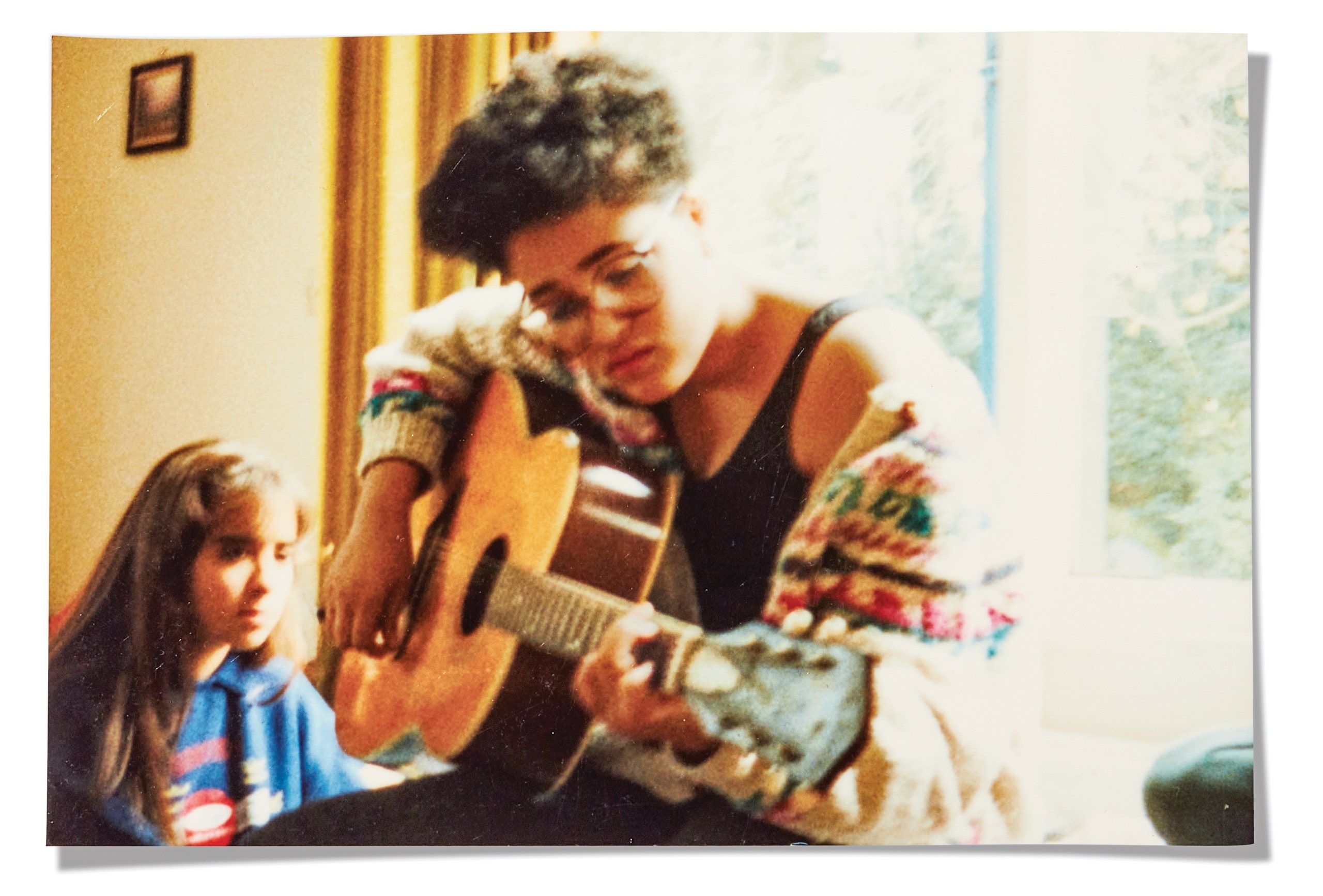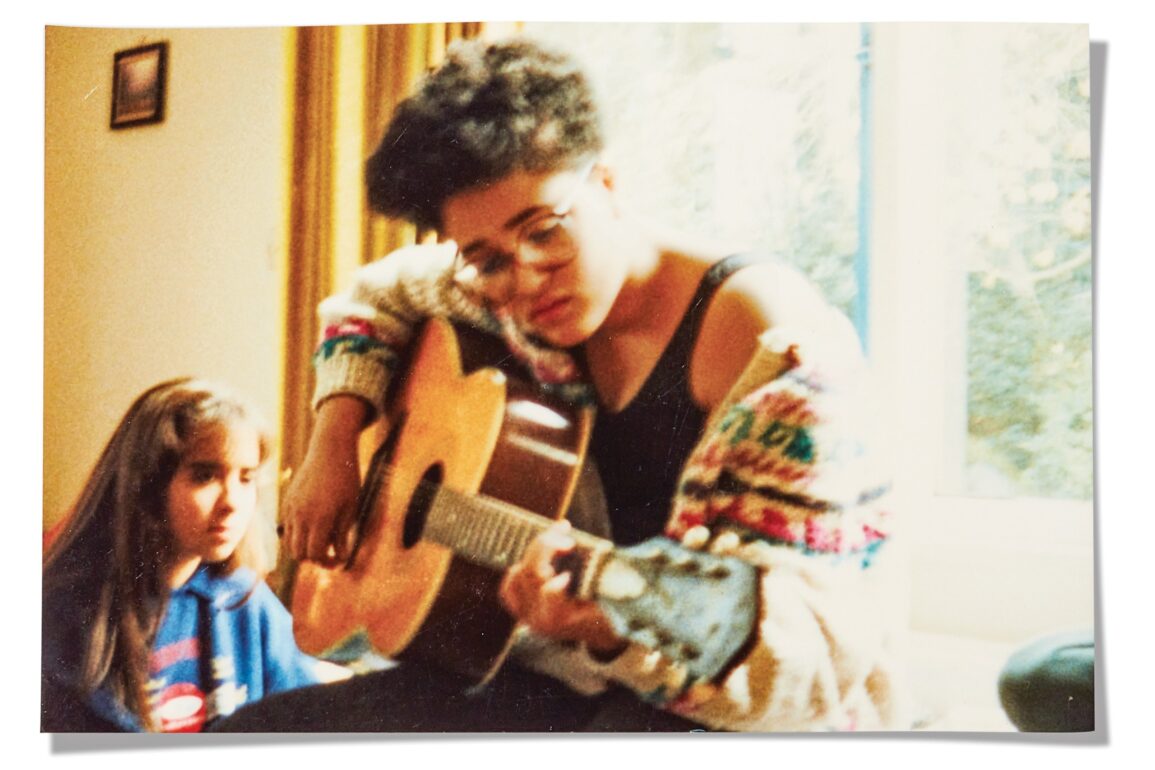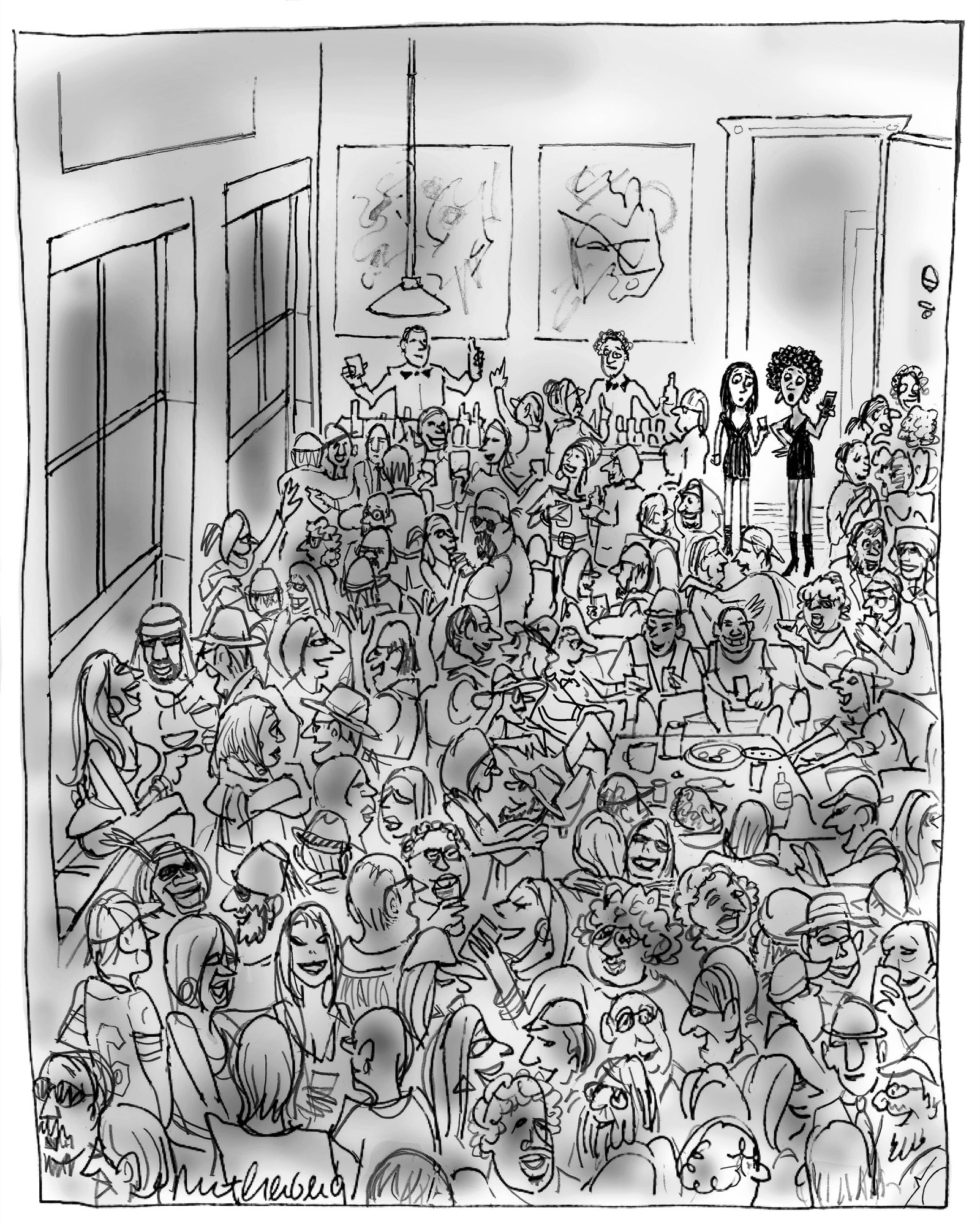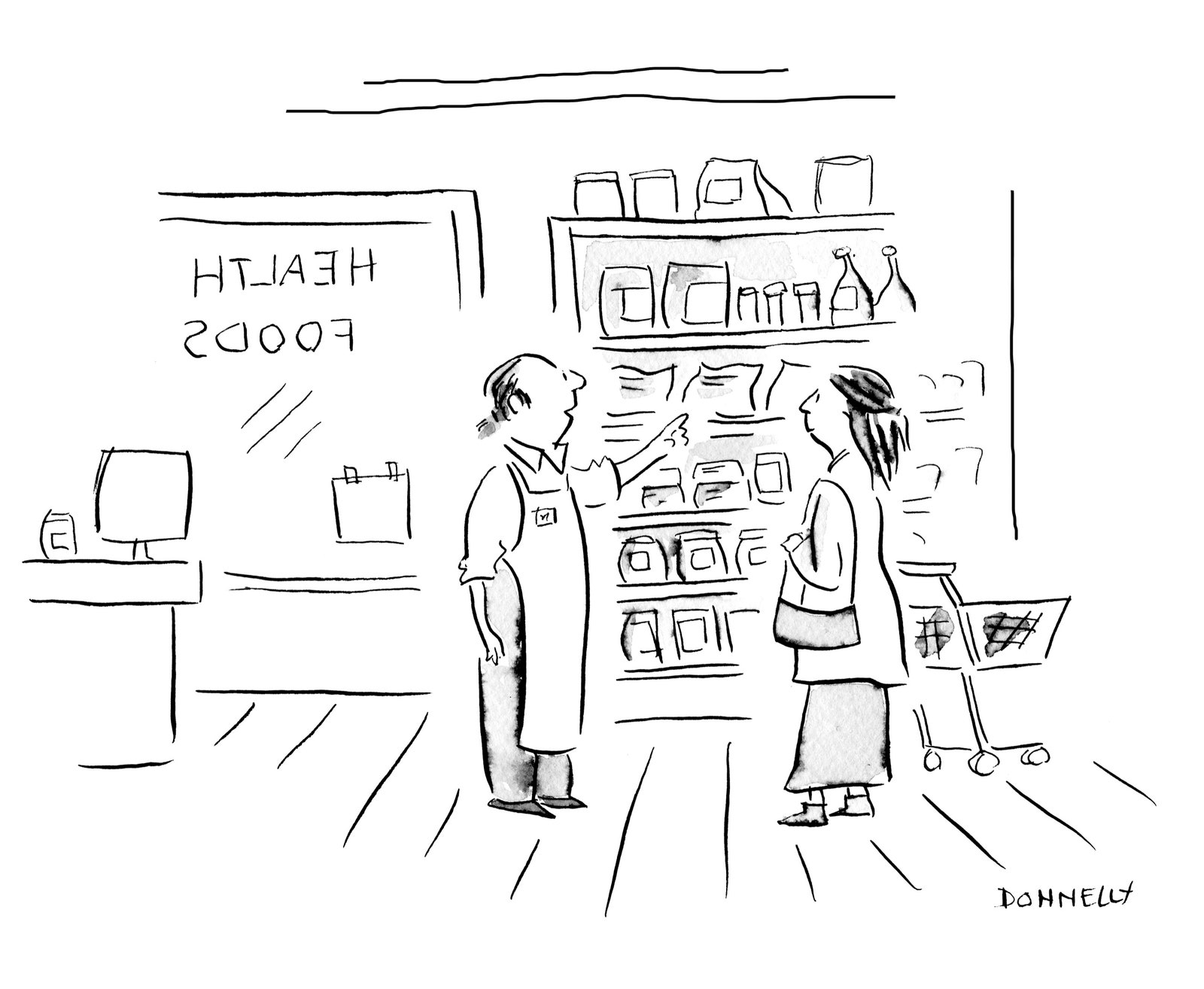The Fall of My Teen-Age Self

I’ve been thinking about teen-agers. I have one myself now, and of course I was one once—in a different world at a different moment—and can remember the feeling. Everything was extremity. It still is. Four waves of feminism, digital connectivity, a global wellness movement, the injunction to “be kind,” the commonplace “it gets better”—none of it seems to have put much of a dent in teen-age misery, especially not of the kind that concerns me. Watching girls gather outside the multiplexes this past summer, choosing between “Barbie” and “Oppenheimer,” I thought, Yeah, that pretty much sums it up. Brittle, impossible perfection on the one hand; apocalypse on the other. I have never forgotten the years I spent stretched between those two poles, and there was a time when I believed that the intensity of my girlhood memories made me somewhat unusual—even that this was what had made me a writer. I was disabused of that notion a long time ago, during the early days of social networks. Friends Reunited, Facebook. Turns out there’s a whole lot of people in this world who feel they never lived as intensely as they did that one particular summer. “If teen-age me could see me now, she’d be so disgusted! ” I said that to a shrink, a few years ago. To which the shrink replied, “Why assume your fifteen-year-old self is the arbiter of all truth?” Well, it’s a good point, but it hasn’t stopped me from carrying her around on my shoulder. I don’t suppose, at this point, I’ll ever be rid of her.
Many interesting things have happened to adult me, but in the opinion of teen-age me there is only one real event in our lives and it occurred on the sixteenth of April, 1993, when I fell thirty feet from my bedroom window. I need to give backstory. (Teen-age me was obsessed with backstory.) Prior to the fall, I had spent a couple of years periodically writing long orations to be read out at my funeral. (By whom? My brothers?) The purpose of these speeches was to explain to the congregation exactly why teen-age me had decided to leave this world, and who, precisely, should feel guilty about her death, and indeed directly culpable for it. I find it odd now that this gothic tendency should have existed so independently of any intention to end my life. Never for a moment did I research or consider any mode of suicide. I could very easily write a funeral oration in the morning and then try to secure an audition for “Annie” in the afternoon. (Teen-age me wanted to be the first black Annie. She did not understand that Annie is, at most, twelve.) But I was still very enamored of this funeral scenario. Skinny bitches with straight hair and straight teeth would hang their silky heads and weep with shame. People with parents who could afford contact lenses or even just non-N.H.S. spectacles would cower before my working-class posthumous righteousness. The sadistic French teacher who wouldn’t let me keep my Puffa jacket on in class would be forced to admit in front of everybody that being from Senegal was an unfair linguistic advantage that she had over her pupils, especially me. Comment dit-on la mort ? And Sasha would take back what she had said about “half-castes,” and the popular girls would notice my wit and inner beauty and want to hang, and my best friend would realize he was in love with me—and they would all be too late! Too late!
Some of this peak teen-age energy I smuggled into “White Teeth,” but, whereas in the novel it was pitched as comedy, in real life it was ponderously self-serious and exhausting to be around. I had been banging essentially the same drum since I was eleven. I’m deep/you’re shallow. You’re rich/I’m poor. You’re beautiful/I’m clever. You’re popular/I’m interesting. And so on. Now I was seventeen. Yet I was still spending an astounding amount of time accusing other people of preoccupations that in reality filled my every waking hour. Who, in the final analysis, was more obsessed with Eleanor’s glossy, swinging bangs? Eleanor? Or me? What about the way Kelly’s fully Caribbean booty looked in patched jeans? (My own backside, flat as a pancake, I considered a cursed inheritance from my father’s sisters.) In truth, my preoccupation with other people’s luck and beauty had long ago turned ugly, my cleverness had curdled into bitterness—none of it was remotely interesting.
And now, on April 16th, in the middle of the Easter break, I had decided to use my mother’s bedroom phone to call my best friend and burden him once again with the knowledge that I loved him, and that the fact he didn’t like me “that way” was ruining my life and might well result in his having to listen to a very long funeral oration, delivered possibly by my brothers or maybe Keanu Reeves, depending on who was available. But because I had served a version of this ultimatum to my best friend once or twice a year since we’d met—aged twelve—he met my histrionics with great patience but few words. Meanwhile, at the other end of the winding phone cord I was dry heaving and messy crying, hoping that he would hear the hidden message in Prince’s “Love 2 the 9’s” (not so hidden), which I had left on playing at full volume in my bedroom. Somehow or other he got me off the phone. I trudged back to my room. Got myself up onto the windowsill with a box of Silk Cut I had stolen from my mother, let Prince’s “7” wash over me, and, in an orgy of self-pity, wept loudly, drew out a cigarette, and prepared to light up.
Backstory: I lived in a world of pure Prince then, and also in a filthy pit of my own creation. Sometimes when I am ranting at my children about the state of their rooms, I suddenly remember what I used to think whenever my mother came in and tried to complain—over the blaring sounds of Prince’s “Sexy MF”—about the bowls of old food stored under my bed, and the cigarette butts put out in the bowls of old food, and the candles I liked to burn and melt into the damp carpet. (Sometimes, if I got bored of a glass of water, I would just pour its remnants out onto the floor.) Yes, when my mother was making her case against me, this is what teen-age me would be thinking: You poor woman. If only you had a life of your own! What a pitiful existence is yours if the only thing you can think to do all day is worry about this petty ephemera! (Teen-age me was reading the dictionary.) She could be standing right in front of me—perhaps holding a Brie sandwich with five cigarettes put out in it—having just come back from a long day as a social worker, dealing with the kind of children who did not get Brie to put into their sandwiches, and could not scream “GET OUT OF MY ROOM,” for they shared that room with their parents. And still I would look at this single-parent, hardworking, immigrant mother of mine and think: Jesus Christ, woman, get a life. Every now and then, though, I took genuine pity on her. Genuine pity meant not changing any of my behaviors but, rather, lying and saying that I had. This particular April, I’d sworn to her I wasn’t smoking. Therefore: stolen cigarettes. Therefore: windowsill.
I’m unsure what the etiquette is these days around mentioning one’s weight at any point in a narrative, but a crucial part of this backstory is that teen-age me was thick and allergic to exercise, which made getting onto the windowsill in the first place somewhat of a challenge. I imagine a nimbler person might have sat with both legs facing forward on the slope of the roof, with an arm holding the window frame, but, once one leg was out, I couldn’t be bothered with the other, so instead I sat astride the half-rotten sill and, overconfident as ever, used both hands to get the fag out of the box and into my mouth.
Then I just—slipped. It had rained the day before. Or maybe the woodwormed windowsill gave out, I don’t know. But in a split second I had flipped entirely over. Now I was gripping the window ledge by my fingertips, hanging as if off a cliff, just as they do in the movies. How long does Cary Grant hang off Mt. Rushmore in “North by Northwest”? It feels like an improbably long time. In North West London, it wasn’t much longer than three or four seconds. And yet! Time dilated or expanded or something. I found out how much of infinity is in a second. A teen-age epiphany. I even had time to think: This is a teen-age epiphany. And also: This is like that moment in “Ferris Bueller” where the picture of “The Bathers” becomes lots of individual dots of color, and inside each dot are more dots! I swear to God I thought that. And I was so calm! Teen-age me—who was as paralyzed and terrified by death as adult me remains—somehow became, in that moment, blissfully calm. I was seventeen. I’d loved books and movies and paintings and the entire life’s work of the tiny man I now reverently called Symbol. I had loved my neighborhood and Keats and Whitney Houston and my school and my friends and my brothers and Tracy Chapman and smoking and—I now realized—even the experience of being in unrequited love for five years. (This being a teen-age epiphany, I did not think of my parents for even one millisecond.) And now it was all, like, over? Nothing can stand in the way of love (I realized). The sky is blue. It’s a beautiful day. Let go.
Adult me likes to think of my work over the years as an ever-changing, living, growing thing. Teen-age me not so much. She says: All you are ever saying in your “work” (eye roll) is the same two things I was saying on April 16th:
(a) Time is not what we think it is.
and
(b) Neither is volition.
I landed sitting up, in our downstairs neighbor’s half of the garden. Apparently, my little brother saw something large go past the living-room window, but did not immediately realize it was me. One of the things other teens ragged me about back then was my size, but the joke turned out to be on them, because, according to the doctor who later operated on me, it was my “big bum” that had saved my life, i.e., my flat and yet substantial arse. I don’t know if that can really be medically accurate, but this is apparently how doctors spoke to young women in the early nineties. Oh, but didn’t I feel like a superhero! I’d fallen thirty feet—and survived! I can even remember believing, for an ecstatic second, that for my next trick I would just stand up and walk away. Then came pain. Our neighbor, a Pakistani woman with not very much English, suddenly appeared by my side, having spotted me through the huge gap in the fence which both her family and ours refused to pay to fix. She was very panicked and I was very calm, but we couldn’t really understand each other and after a while I just lay back and looked at the sky.
She must have called an ambulance, though, because one seemed to arrive almost instantaneously (time is not what we think it is), and they gassed me with something that made the whole world go orange. For the purposes of this story, I do wish it were purple, but it was orange. What a wonderful drug that was! I had by that point in life taken my fair share of consciousness-altering substances and as a young critic-in-training decided on the spot to give this one, whatever it was, a solid four stars. By that time, my mother was at my side, and I thought it was because I was so high that I couldn’t precisely answer the question: What happened? Thirty years later, I am no closer to answering it. Why did I let go? Did I want to? I was sad. Moments earlier I was terribly sad. But then I was so happy! So did I fall or did I jump? Was it an accident? A subconscious choice? A decision? All of the above? What do people mean when they say they chose something? Or that they wanted to do something and willed it to happen? I get that willing and wanting things in a sequence is how we make and tell a story. But not everything is a story. And how do we know when we really want something, or really will it? What the hell is volition, anyway?
I don’t always remember that the thing about Holden Caulfield is that he’s trying to stop kids from falling from a great height: “I’m standing on the edge of some crazy cliff. What I have to do, I have to catch everybody if they start to go over the cliff.” On the other side of the precipice, presumably, is the adult world of phonies, who all seem to know everything and have a commonsense answer for all your existential questions. Time? Well, that’s what you’ll find on the goddam clock. Just remember to put it forward an hour in the spring. Volition? Jesus Christ, woman, give me a break. You wanted to do something and you did it: end of story. There is something so adolescent in writers. They will keep asking childish questions. Is that a good thing? I did really love Salinger as a teen, but as an adult, rereading him, I’m sad to report that I have a different reaction. It’s one thing to keep asking childish questions, and another to permanently retreat into the fields of rye. Surely the whole point is to keep putting our childish questions to the calcified adult world, just in case they can change anything down there, on the other side of the cliff.
To that end, I got very lucky after my fall, because the ambulance took me straight from the world of abstract adolescent angst to the brick-and-mortar reality of Middlesex Hospital, during the glory days of the N.H.S. There I discovered that time—besides being an existential question—can also be a practical quantity that human beings willingly agree to expend upon other human beings, in order to put metal pins into shattered femurs, and lift flat arses to place bedpans underneath them. It dawned on me that my own kind of smarts had no intrinsic value, the “skill” of analyzing Salinger suddenly appearing puny when compared with the capacities of the young nurse who took out my staples and attached my catheter. I learned that there was really such a thing as a vocation, and that some people willed theirs into being, not just by studying medicine and practicing it but also by sitting at bedsides and joking with relatives. I discovered the different levels of volition that can exist on a national scale, in order to build a health-care system funded by the taxpayers—that motley collection of willing and unwilling participants—which would then result in a group of medical professionals spending the better part of two years insuring that a broke-ass teen-ager with a bad attitude walked again without any money directly passing hands between us. But that’s another story . . .
Because I was too lazy to do my rehabilitation exercises, I was on crutches for the longest time. I did my A-levels on crutches. A sympathetic teacher had to drive me to and from school for six months because my mum was at work. My peers, meanwhile, were notably less sympathetic. I had always wanted to create an aura of mystery and fascination around me, but what I got instead was awkward pity and embarrassed silence. No one dared ask me if I’d tried to kill myself—not even my own family—and though I told anybody who asked that I’d fallen out of my bedroom window “smoking a fag,” I don’t think anyone really bought that, either. It didn’t make sense as a story, so it just sort of sat there lumpenly as a fact about me, albeit a fact that fit pretty neatly with the rest of my reputation as a petulant klutz who was always doing something off key and faintly ridiculous. You could just about believe that the girl who thought it was cute to wear one red shoe and one white, who frequently got caught pretending to have watched films she’d never seen, and who once played a rabbi in a self-written play about the Holocaust would be the same schnook who fell thirty feet out of her own house. It was all peak Sadie. Or “Zadie” (eye roll), as I had recently begun to insist on being called. The fall brought me no kudos and no respect, but it did cure me of the habit of writing funeral speeches. I’d run right through the rye to the cliff’s edge and looked over, and in the process discovered a newfound appreciation for rye. I took my teen-age misery back to my fetid armchair, opened a book, retreated.
Sometimes I ask myself: What would teen-age me do with her misery now? Where can a twenty-first-century girl go these days to retreat from reality? (If the answer “the Internet” comes to mind, I’m guessing you’re either over fifty or else somehow still able to imagine the Internet as separate from “reality.”) I worry that the avenues of escape have narrowed. Whatever else I used to think about time, for example, the one thing I never had to think about was whether or not there would be enough of it, existentially speaking. But now the end of time itself—apocalypse—is, for the average teen-ager, an entirely familiar and domesticated concept. I don’t remember taking Y2K seriously, but I bet I’d be a 2038 truther now. And to whom would my funeral orations be directed? My realm of potential envy would no longer be limited to just the people in my school or my neighborhood. Now it would stretch to as many people as my phone could conjure—that is, to all the people in the world. I’d like to think Prince would still be mediating my world to some degree, but I know he would be infinitely tinier than he was before, reduced to a speck in an epic web of digital mediation so huge and complex as to seem almost cosmic. I imagine I would be having a very hard time deciding if what I actually willed was what I appeared to be willing. Do I really love my lengthy skin-care regime? Do I truly want to queue all night to purchase the latest iteration of my device? Does this social network genuinely make me feel happy and connected to others? Or did some unseen commercial entity decide all that for me? I don’t think teen-age misery is so very different from what it used to be, but I do think its scope of operation is so much larger and the space for respite vanishingly small. But I would think that: I’m forty-eight.
It’s just far too easy these days for adults to fall into a teen-age pit of despond when considering the current existence of teen-agers, but I try to remind myself that, despite all the obvious transformations, two of my favorite, intimate self-cures continue to be readily available: people and books. Being with people. Reading books. Every now and then, I barge into my teen-ager’s room without knocking and try to recommend both. You can imagine how that goes. Time collapses. I wish I hadn’t done it. Then why did I do it? What a pitiful existence is yours that the only thing you can think to do all day is worry about this petty ephemera! ♦
This post was originally published on this site be sure to check out more of their content.








